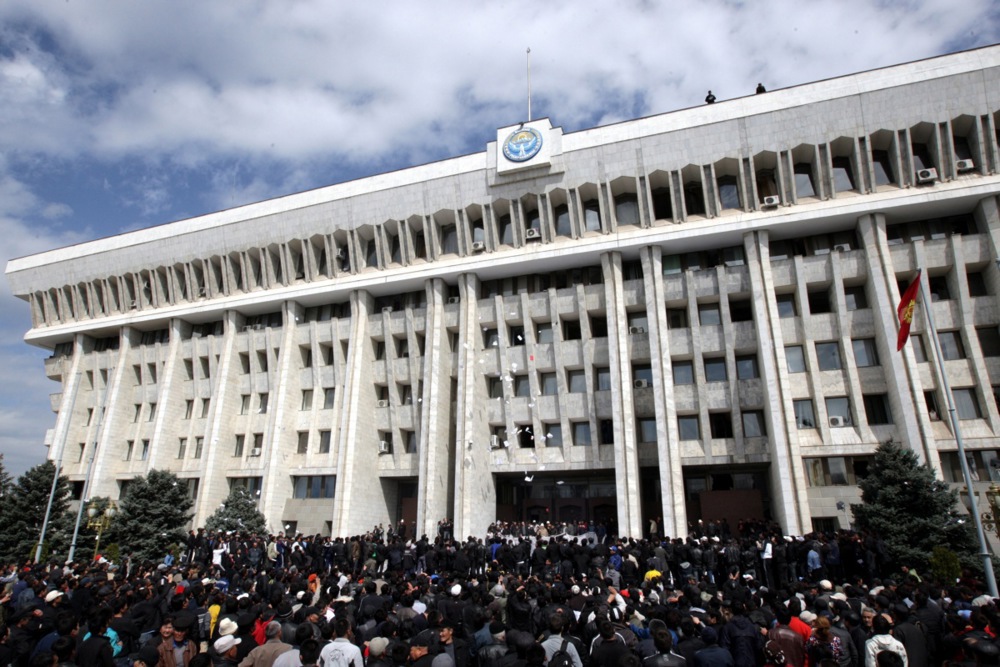The IPI global network calls on members of the Kyrgyz parliament to vote against a proposed bill which would allow the Ministry of Interior to fine media, websites, and social media users for alleged insult and defamation. If approved by lawmakers, the law would allow for fines to be imposed without a court ruling.
On December 5, the Kyrgyz parliament adopted the bill on introducing fines in second reading. The text was earlier heavily criticized by media lawyers in Kyrgyzstan, who pointed to several issues with the legal changes it would bring about.
According to the draft bill prepared by MPs, fines of up to 20,000 Kyrgyz som (approximately 220€) could be imposed on individual internet users for content considered to be defamatory or insulting. This sum would rise to 65,000 som (approximately 715€) if the alleged defamation or insult is committed by a media outlet.
“In Kyrgyzstan, the average monthly salary is 35,000 soms (385€), and outside Bishkek this is even less,” Kloop editor-in-chief Anna Kapushenko explained to IPI. “A fine like this for a citizen of Kyrgyzstan means that they will have to give most if not their entire salary to the state if they are fined. This can also strongly affect independent media, since 715€ is also a fairly large sum.”
According to Kapushenko, if several claims are filed at the same time, and all of them are satisfied by authorities, the fined media outlet may cease to exist. As a result, journalists, afraid of receiving such a high fine, will stop expressing their opinions online, and people will stop giving comments to the media.
“IPI calls on Kyrgyz lawmakers to vote out the proposed bill on defamation and insult in media and online,” said IPI Interim Executive Director Scott Griffen. “Allowing a government ministry to impose fines on media outlets for insult or defamation without a court order is an invitation to arbitrary application and a clear violation of international norms and standards on freedom of expression.
He added: “Defamation claims should be brought exclusively before a civil court, which is already a possibility in Kyrgyzstan. Government bodies should not have the power to decide what is defamation or insult, much less be able to issue fines. We urge Kyrgyz lawmakers to reject this dangerous bill and instead ensure that the country’s defamation laws are brought in line with international standards and best practices.”
Kyrgyz media lawyers also noted that the fines proposed by the draft legislation are very high by local standards, making them akin to those typically foreseen by the country’s criminal code. According to Semetey Amanbekov, a media lawyer who spoke to IPI, this could make the new law unconstitutional, as it would introduce “quasi-criminal” liability for defamation, which is banned by the Kyrgyz constitution.
“A state institution, basing itself only on its own arguments and opinions, without consulting either sides of a conflict, will be able to declare any information to be defamatory and impose a fine,” Amanbekov told IPI. “According to the Kyrgyz constitution, defamatory or insulting information of any kind cannot be subject to criminal liability. The fines introduced by this law are considered to fall under ‘quasi-criminal’ liability, meaning that this law contradicts the constitution. The aim of this law is not to defend anyone from insult or defamation, but to restrict freedom of speech. Moreover, decisions by the Ministry of Interior to impose fines could be politically motivated, as the ministry is a political institution dependent on the Cabinet of Ministers.”
Once a beacon of democracy in Central Asia, Kyrgyzstan has become increasingly repressive towards independent journalists and other government critics since the election of President Sadyr Japarov in 2021. Earlier this year, Kyrgyzstan adopted a Russian-style “foreign agent” law, which introduced serious limitations on the work of foreign-funded NGOs, including media outlets with this legal status.



